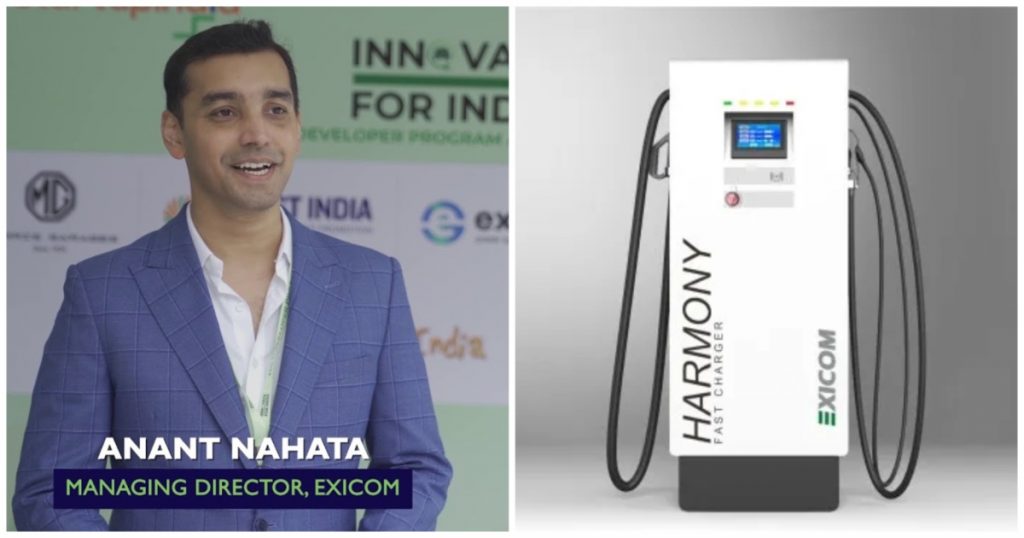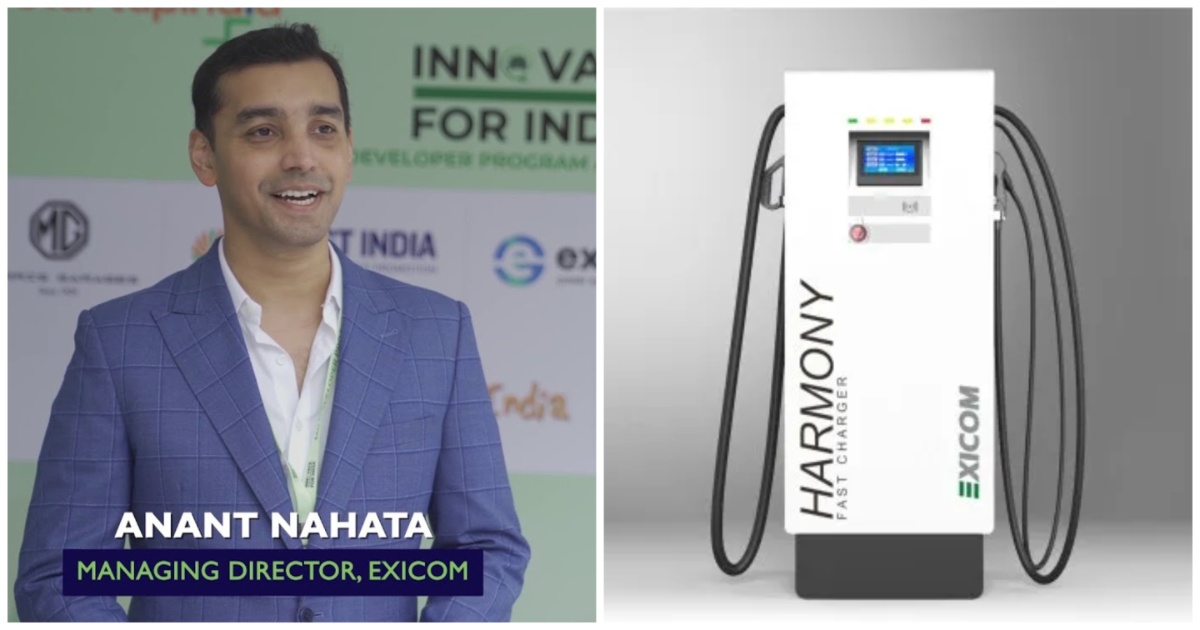There’s a fair amount of spotlight on companies which are seen to be at the forefront of India’s electric revolution — electric vehicle manufacturers have become household names, and are quickly snapping up users in the growing segment. But there are also many companies in the background which are silently helping power their operations.
Exicom Telesystems is a company that’s making Electric Vehicle chargers in India. It has a 60 percent market share in the home charging space, and a 25 percent market share in the commercial charging space. Exicom is also listed on the stock markets, and currently has a market cap of nearly Rs. 3,000 crore.

The origins of Exicom Telesystems
Exicom Telesystems has a long and storied history, and it didn’t start with EV chargers. The origins of the company can be traced back to 1987, when Mahendra Nahata founded HFCL (Himachal Futuristic Communications Limited) as one of the first private sector telecom-based companies in India. The company set up manufacturing facilities in India for optical fibre cables, optical transport, power electronics and broadband equipment for global supply, and provided turnkey solutions to the the Indian government and other players. In 1994, Exicom Tele systems was founded and created systems for power systems used chiefly in telecom industry.
In 1995, HFCL bid Rs. 85,000 crore for a basic telecom services license, which is credited with creating momentum for the telecom industry in India. HFCL grew in prominence over the years. In the late 2000s, Mahendra Nahata’s son Anant Nahata promoted Infotel Broadband, which surprisingly snagged up all-India telecom spectrum rights, and then sold a 95 percent stake in the entity to Reliance. This would be the start of Reliance’s dominance in the telecom sector through Jio later in the next decade.
Anant Nahata, meanwhile, was involved with e-commerce portal Koovs.com, which was a fast fashion platform in the first phase of India’s e-commerce journey. He helped revive the brand, bringing in a new Chairman and adding more product lines. Nahata ended his association with Koovs in 2016. In 2018, Koovs had an investment commitment from Future Group’s Kishore Biyani, but the deal never went through, and Koovs was eventually sold off to the Chairman Nahata had appointed.
Anant Nahata, meanwhile, had also been involved with Exicom Telesystems since 2009. In 2010, the company expanded into Southeast Asia and created Lithium-ion battery storage systems for telecom infrastructure. In 2016, Exicom introduced renewable hybrid solutions for the telecom power industry. This history of working on power systems put Exicom in a place to benefit from the EV boom, and in 2019, the company was quick to see the growing trend of electric vehicles, and entered the EV chargers space.
Exicom Telesystems Business Overview
Cut to today, Exicom operates in two industries: its original power systems business for the telecom industry, and its Electric Chargers business. In the power systems business, it builds DC power systems and lithium ion battery solutions. These systems keep telecom systems working even when there are interruptions in the grid. In Exicom’s newer electric chargers business, it manufactures Electric Chargers for uses in homes, at dedicated charging stations, and for commercial vehicles.
“In the last 4 years, a lot of growth has taken place in the EV space, and the tipping point could be soon approaching — the range of electric vehicles has increased rapidly, and their prices have come down. India is now selling 1 lakh passenger EV cars a year, which is just 2.5 percent penetration. Huge growth in the industry can happen when it hits 10-15 percent. Even for electric buses, there’s huge push from the central and state governments to promote them,” Anant Nahata said in an interview.
Exicom is now the biggest EV charger provider in India. It has deployed more than 70,000 chargers across India and southeast Asia. Exicom counts companies including MG Motors, KIA, Hyundai, Audi, Volvo, Jio, Blu Mobility, Tata Motors and Ashok Leyland among its partners. The company also has plans to enter UK and Europe with EV chargers built specifically for those markets.
Exicom has three manufacturing facilities — two in Gurugram and one in Solan. Its facilities in Gurugram in Haryana can manufacture 1.08 lakh AC chargers and 2,400 DC chargers per year. The company is also building a new facility in Hyderabad, which will be able to manufacture 3.6 lakh AC chargers and 7,800 DC chargers per year. The Hyderabad facility will build chargers for both Indian and export markets. Exicom currently has has over 1,000 employees.
Exicom financials
Exicom has seen its revenue grow in recent years. Its revenue has risen from Rs. 309 crore in 2021, to Rs. 335 crore in 2022, to Rs. 515 crore in 2023. The company has made profits in the last two years — it had reported a loss of Rs. 3.68 crore in 2021, but followed it up with profits of Rs. 4.05 crore and Rs. 7.85 crore in 2022 and 2023 respectively. EV charging currently contributes nearly 30 percent of the company’s revenue.
Anant Nahata feels the global EV story is just getting started. “This is the time we need more players in the industry, whether it’s auto manufacturers, or other parts of the EV ecosystem including charging manufacturers,” he says. “Today there are a few players educating the market, and there are more players putting up more charging stations, which gives more comfort to the customers to buy more electric cars, which creates further demand for charging stations. That’s the kind of flywheel loop we’re looking at as an industry,” he says.
